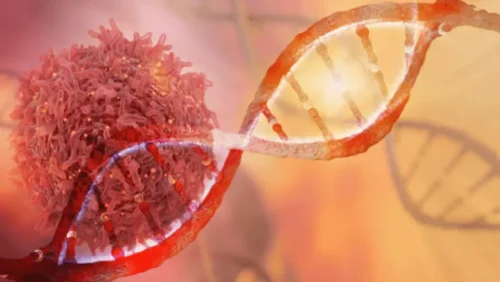
The point of detox is to make sure that you can get through the withdrawal symptoms without experiencing too many adverse side effects. In many situations, patients will receive small amounts of medication to ensure that any withdrawal symptoms are mitigated as withdrawing from alcohol without medical assistance is dangerous. The severity of the withdrawal response after discontinuing alcohol depends on the duration of alcohol use and the quantity of alcohol consumed. People who have consumed alcohol for 1 to 3 months or drunk large quantities of alcohol for 7-10 days typically experience withdrawal symptoms lasting for 6-24 hours after they stop drinking.
The Stages of Alcohol Recovery: Ultimate Guide
Building a strong support system is crucial for individuals in recovery. Having a network of supportive family members, friends, and peers who understand and respect the journey can provide invaluable encouragement and assistance. A support system can help individuals stay accountable, provide guidance during difficult times, and celebrate milestones and achievements. Approximately 15 percent of those who relapse regress to the precontemplation stage, and approximately 85 percent return to the contemplation stage before progressing to the preparation and action stages.

Breaking the Physical Dependence
It often takes going through each season, all the birthdays and weddings, and everything in between, to make not drinking alcohol feel normal. The first phase is called acute withdrawal, stages of alcoholic recovery and symptoms tend to be physical, like nausea, insomnia, or even tremors and seizures. If these symptoms make it harder for you to stay sober, medications may help.

Operant Conditioning and Addiction: The Behavioral Science Behind Substance Abuse
- It often takes a significant event or accumulation of negative consequences to crack this facade.
- You may have heard before that “the first 30 days can be the hardest,” and experts tend to agree.
- It’s not uncommon for people to get stuck here, caught in a loop of wanting to change but feeling unable to move forward.
During the precontemplation stage, a person is feeling the effects of their addiction but is not interested in changing their habits. They will likely be defensive about their alcohol use and may even deny that it’s beyond their control. It sometimes takes a big event for someone to understand that they have an alcohol use disorder, such as a legal issue or an intervention. After someone realizes they may have an issue with alcohol use, they can move onto the second stage. As individuals continue to nurture their long-term recovery, it’s important to remember that setbacks may occur. It’s essential to approach setbacks with compassion and seek immediate support to get back on track.
How Does Addiction Develop in the Brain?

So far, there’s no consensus on the medical definition of recovery in alcohol treatment literature. In the action stage, people have chosen an approach to sobriety and they’re executing it. Once people in the contemplation stage shift away from just thinking about their alcohol problem and begin focusing https://ecosoberhouse.com/ on a solution, they’ll move toward stage three of recovery. Doing a cost-benefit analysis to weigh the benefits of alcohol use against the cons and costs can sometimes help a person find clarity at this stage. Alcoholics may even lie and blame others, rather than their addiction, for their problems.
Moving Forward in Recovery
With longer term sobriety or moderation, a profound sense of clarity will emerge. Not to mention, the lasting health benefits to the immune system, liver, blood pressure, mental health and much more. First, it’s important to understand the signs of both acute and post-acute withdrawal. Acute alcohol withdrawal can occur after an extended period of heavy binge drinking, and usually takes place within the first week of quitting alcohol. The acute alcohol withdrawal timeline and process looks different for everyone, and the symptoms can range from uncomfortable to potentially dangerous. These symptoms of acute alcohol withdrawal can include alcohol shakes, nausea, delirium tremens, hallucinations, and more.
As individuals traverse the stages – pre-contemplation, contemplation, preparation, action, maintenance, and termination – the integration of motivational interviewing ensures a tailored and responsive approach. Ultimately, embracing the nuances of each individual’s journey, TTM and MI provide a comprehensive framework for clinicians and individuals alike to navigate the intricate terrain of addiction recovery. Detoxification is a crucial step towards recovery, but it is important to remember that it is only the beginning.

How to Detox from Alcohol at Home
From addiction hotlines to support groups, from therapists to recovery coaches, there’s a wealth of resources out there. Research shows people who have a supportive social network are more likely to remain alcohol-free after withdrawal. Those with a wider circle of support have a better chance of staying sober. There are many support options available that can help guide you through alcohol withdrawal, as well as abstaining from alcohol after withdrawal.
Stage 3: Detoxification and Withdrawal
Rather than emphasizing powerlessness and embracing a higher power, the SMART Recovery approach emphasizes viewing substance use as a habit that people can learn to control. It draws on aspects of cognitive-behavioral therapy (CBT) and helps members to build motivation, cope with cravings, change addictive thoughts, and adopt healthy habits. As individuals progress through the rehabilitation stage, they become better equipped to address underlying issues and develop healthier coping mechanisms. The next stage, maintenance and relapse prevention, focuses on sustaining sobriety and establishing a support network for ongoing recovery. Detoxification is a complex and challenging process, which is why it is strongly recommended to undergo it under medical supervision. Alcohol detoxification can have potentially life-threatening complications, especially for individuals with severe alcohol dependence.
Supportive Networks and Aftercare Programs
- Depending on an individual’s needs, such treatments may involve therapy, medications, or inpatient/outpatient rehab.
- Nevertheless, many treatment programs, including Alcoholics Anonymous, require a commitment to complete abstinence as a condition of admission.
- They’ve tipped the scales in favor of change and are now taking small steps towards their goal.
- These can be healthy coping mechanisms someone turns to as they progress through recovery.
It’s not about telling someone what to do, but rather helping them uncover their own reasons for change. These rationalizations serve as a protective shield, keeping the reality of addiction at bay. It’s a tricky stage because the individual isn’t actively seeking help or information about their behavior. They might become defensive if confronted about their addiction, viewing such concerns as unwarranted criticism. Granite Recovery Centers provides medical detoxification for people who do not need immediate medical intervention, are not a danger to themselves, and are capable of self-evacuation in the event of an emergency. People who drink daily or almost every day should not be left alone for the first few days after stopping alcohol.
